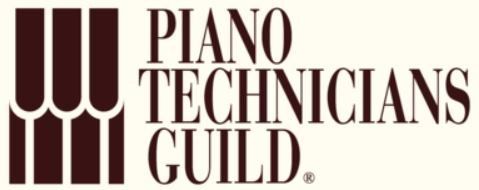...and yours can too!
PIANO SERVICE FAQ'S
Piano Service - FAQ's
How much does a tuning cost? How long will it take?
A regular tuning takes about an hour and a half from start to finish. Once the piano is operating well and in great condition a tuning costs about $144 to $192 (1.5-2 hours). All piano work is currently charged at $96 per hour. If this is the first time that Dwight has seen your piano, plan on a First Visit (which involved more than just a tuning).
What is involved in a First Visit?
Most pianos Dwight encounters need more than a basic tuning to play and sound their best. Even if they’ve been regularly tuned for years there are often technical adjustments and services that only a concerned, educated, and experienced piano technician can provide. Please be aware that a piano has 88 keys. Each key has multiple working parts, all susceptible to wear and tear, dust and grime, humidity and dryness, hot and cold, even moths and mice.
The first time Dwight meets a piano (a First Visit), we find that it is best to plan on him being there for 3-5 hours ($288-$480). Although some First Visits can be shorter and others longer, many include several of the services listed below. Every piano is different and costs can vary depending on the condition of the piano, funds available, and time constraints. If Dwight determines that he may need more than 3 hours, he will discuss options with you at that time.
A.
Evaluation. This step determines what needs to be done, how long it will take, and what it could cost. Having a list of the conditions encountered and their corrective steps helps Dwight and the piano's owner to prioritize and develop a plan of care.
B.
Cleaning. Did you know that many pianos are considered great homes for mice, lost guitar picks, and photos of children from families of previous owners? Extracting foreign matter, vacuuming, and washing keys make for a healthier environment and improves the tactile interaction of the player and instrument.
C.
Tightening screws of the various assemblies of a piano sets a firm foundation for other maintenance procedures.
D.
String spacing and hammer alignment, reshaping, and voicing help bring out the beautiful tone of the piano.
E. Lubrication and adjustment so that keys respond easily and evenly, pedals don’t squeak, action parts work well, etc.
F.
TUNING. Dwight tunes primarily by ear, with minimal electronic assistance. Most pianos are set at the A440 standard. If the general pitch of an instrument is flat or sharp, a pitch adjustment will need to be performed before a regular tuning will be stable. The regular fine tuning may be part of the first visit, or may be deemed a later stabilizing measure.
Dwight can also do JUST an evaluation, which usually takes one hour ($96). This is useful if:
A.
You’re thinking about buying a piano, but want to know if it’s worth it.
B.
You’re thinking of selling a piano and want help determining its worth.
C.
You’re thinking of giving away your piano and want to know if it’s really a gift worth giving.
D.
You’re thinking of getting it in playable condition for your wife for her birthday and you want to know if it’s even a possibility.
Continuing care of a piano includes regular tunings, occasional cleaning, and refinement of regulation adjustments. Follow-up tunings are important to stabilize the strings and tension-bearing structures after large pitch adjustments have been performed. Some instruments may need further procedures beyond what was practical during the First Visit.
LEAVE US A MESSAGE
Thank you for contacting us.
We will get back to you as soon as possible.
We will get back to you as soon as possible.
Oops, there was an error sending your message.
Please try again later.
Please try again later.
Thank you for contacting us.
We will get back to you as soon as possible.
We will get back to you as soon as possible.
Oops, there was an error sending your message.
Please try again later.
Please try again later.
Content, including images, displayed on this website is protected by copyright laws. Downloading, republication, retransmission or reproduction of content on this website is strictly prohibited. Terms of Use
| Privacy Policy




